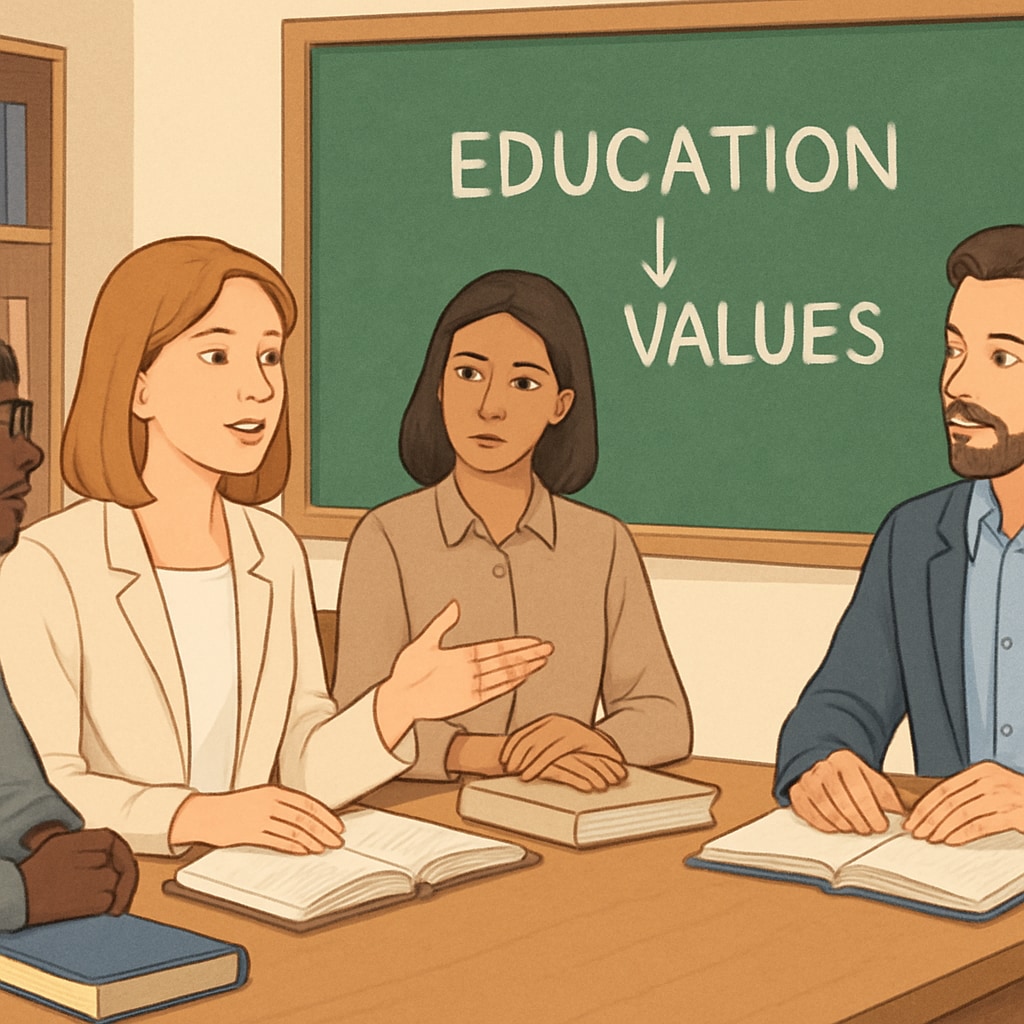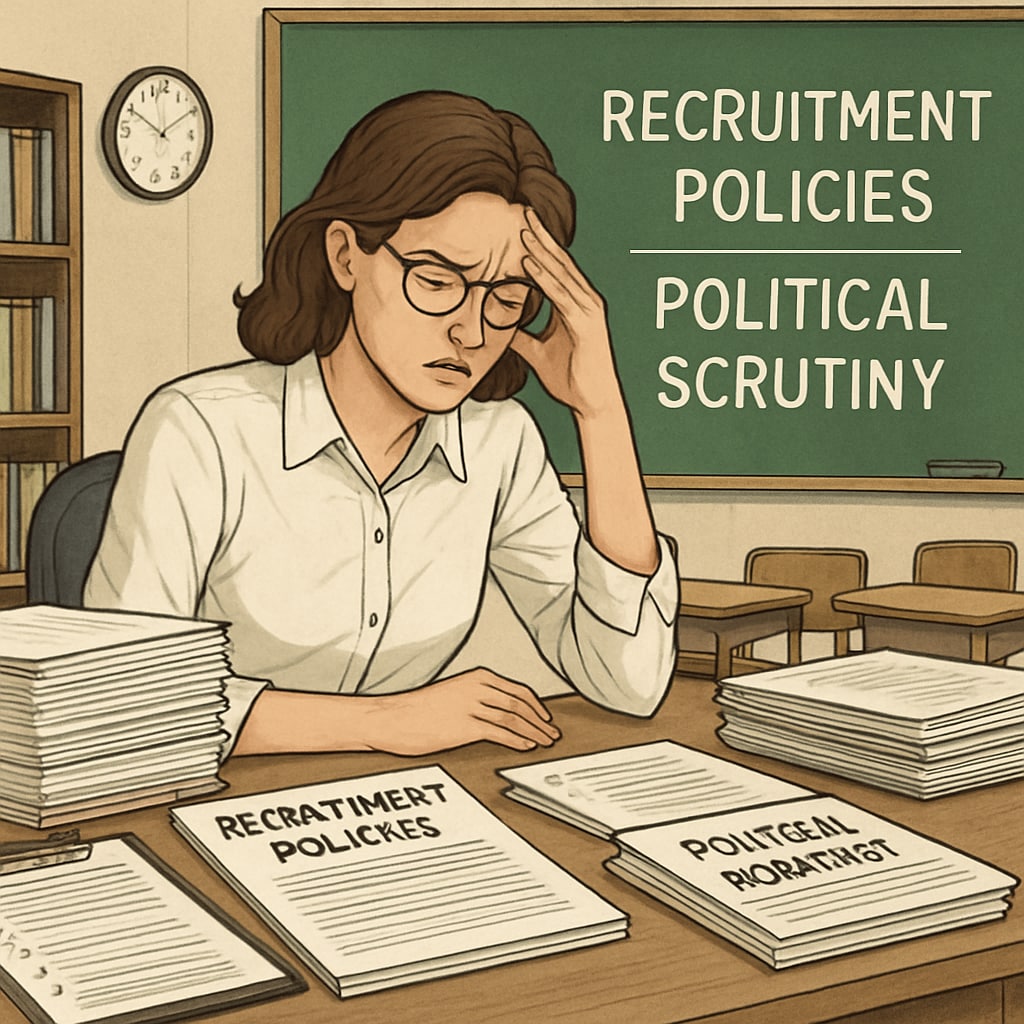Oklahoma’s recent decision to implement political belief assessments for out-of-state teachers has sparked heated debate. The policy, which aims to evaluate applicants’ political views as part of the hiring process, has raised questions about the intersection of education and politics. Critics argue that this practice could undermine educational neutrality and discourage qualified educators from applying, while proponents see it as a way to align teaching with community values.
Why Political Beliefs Are Being Screened in Teacher Applications
The introduction of political assessments in Oklahoma’s teacher application process stems from concerns over ideological divides in education. State officials have cited the need to ensure that incoming educators align with local community standards and values. However, this raises critical issues about fairness and the ability of teachers to maintain objectivity in the classroom.
Proponents of the policy argue that teachers play a significant role in shaping students’ perspectives, and thus their political ideologies matter. On the other hand, opponents view this approach as a dangerous precedent, where hiring decisions could be swayed more by political biases than professional qualifications.

The Consequences of Politicizing Teacher Recruitment
One concern regarding this policy is its potential to exacerbate the teacher shortage in Oklahoma. Nationally, many states are already struggling to attract qualified educators, and imposing additional barriers like political belief assessments could deter prospective candidates. In addition, such measures could lead to lawsuits, as questions surrounding discrimination and constitutional rights come into play.
Furthermore, politicizing the hiring process might erode trust in the education system. Parents and educators alike may fear that schools will prioritize political conformity over academic excellence. This could result in a divisive environment where teachers feel pressured to adhere to ideological expectations rather than fostering critical thinking among students.

Balancing Education and Political Neutrality
The broader concern is the growing trend of politicizing education. Historically, education has been viewed as a neutral ground for nurturing intellectual growth and critical thinking. However, policies like Oklahoma’s political screening highlight how this neutrality is being challenged. The question remains: Can education truly remain impartial in a politically charged society?
To address these issues, policymakers must consider alternative approaches. For example, instead of assessing political beliefs, schools could focus on ensuring teachers are equipped to teach diverse perspectives and encourage open dialogue in classrooms. This approach prioritizes professional competence while respecting individual freedoms.
Moreover, states could work on creating guidelines that promote inclusivity without encroaching on personal ideologies. Such strategies can help maintain the integrity of the educational system while addressing community concerns.
Looking Ahead: The Impact on the Teaching Profession
Oklahoma’s political screening policy represents a crossroads for the teaching profession. Its implementation could have far-reaching consequences not only for teacher recruitment but also for how education is perceived in society. If other states adopt similar policies, the risk of a politically fragmented educational landscape may grow.
As a result, stakeholders—including educators, parents, and policymakers—must engage in open dialogues to determine whether such measures truly serve the best interests of students and communities. Education should aim to unite rather than divide, fostering an environment where diverse ideas are welcomed and explored.
In conclusion, Oklahoma’s political screening of out-of-state teacher applicants raises critical concerns about the role of politics in education. While ensuring alignment with community values is important, the potential downsides of such policies—including reduced teacher diversity and increased polarization—cannot be ignored. As the debate continues, it is essential to prioritize solutions that uphold the core mission of education: to empower future generations with knowledge, critical thinking, and respect for differing perspectives.
Readability guidance: Use concise paragraphs, clear transitions, and avoid jargon. Lists can summarize key points when appropriate. Ensure the tone remains balanced and professional throughout.


